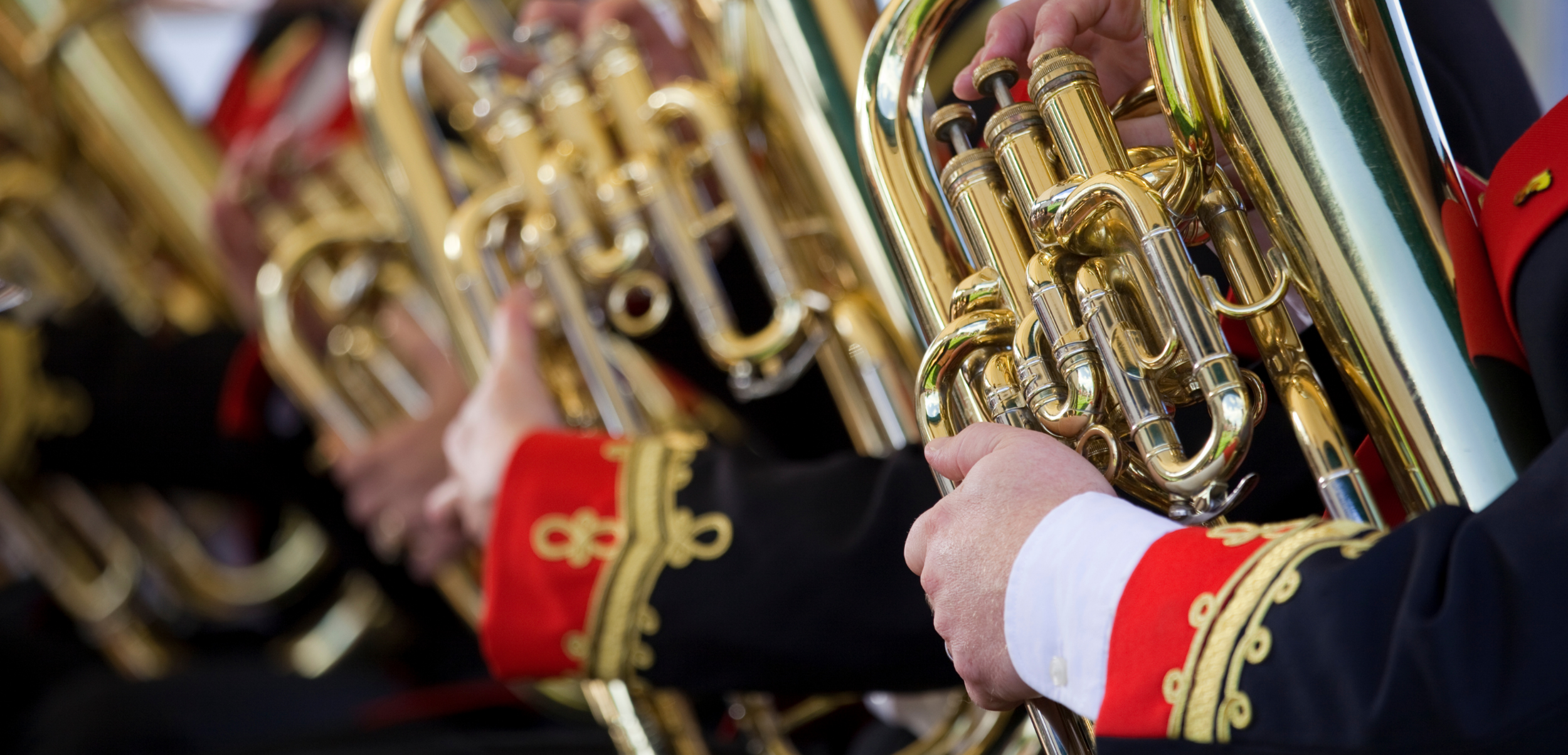
Brass Band
Strathcarron: Sword Dance from Hymn of the Highlands
Grade 5 | 5 Mins
Hymn of the Highlands was commissioned by David King and the Yorkshire Building Society Band for first performance at the 2002 European Brass Band Championships Gala Concert in Brussels.
David King’s imaginative programming had already led to the writing of three such ‘concept’ pieces for brass band – Cry of the Celts, Voice of the Vikings and Windows of the World. The idea was to produce an extended and themed piece, which can act as a half concert to feature a band’s soloists. We decided on a Scottish theme but haven’t used any folk songs.
The entire suite comprises seven movements, all named after locations in the Scottish Highlands, and lasts about 35 mins.
Ardross Castle 7:03
Summer Isles – Euphonium solo 4:07
Flowerdale – Soprano Cornet solo 4:22
Strathcarron – Sword Dance 5:37
Lairg Muir – Cornet solo 4:29
Alladale – Flugel Horn, Horn and Baritone trio 4:12
Dundonnell – Finale 5:46
Ardross Castle, (named after a small village near Ardross in Easter Ross, just north of the Cromarty Firth) starts with distant calls from horn and baritone before the bagpipe tune is introduced. A faster central section uses the opening material in a different guise but the movement ends slowly.
Two solo movements follow, Summer Isles (named after a small group of islands off the north-west coast of Scotland, famous for their wildlife) and Flowerdale (a forest in Wester Ross with a well-known waterfall) and these are followed by Strathcarron, a sword dance for the whole band which alternates slow and fast tempi. Strathcarron village is at the head of Loch Carron, near the Isle of Skye.
A cornet solo, Lairg Muir, (close to the village of Lairg on Loch Shin and surrounded by heather moors) is followed by a trio for flugel, horn and baritone, Alladale, (the river Alladale is a tributary of the Carron, which leads out into the Dornoch Firth on the east coast) which features a percussion accompaniment. This leads to the finale, Dundonnell, (named after a charming village at the head of Little Loch Broom which leads out to the ocean near Summer Isles) which starts in martial mood but soon breaks out into a wild presto. Eventually the bagpipe tune from the first movement returns before the presto crashes to a close.
It is possible that suites of different lengths can be constructed to feature particular soloists or fit different programming constraints and to this end most of the movements are published separately. The only exceptions to this are the first and last movements, which are published together (with Alladale) as Suite from Hymn of the Highlands.
